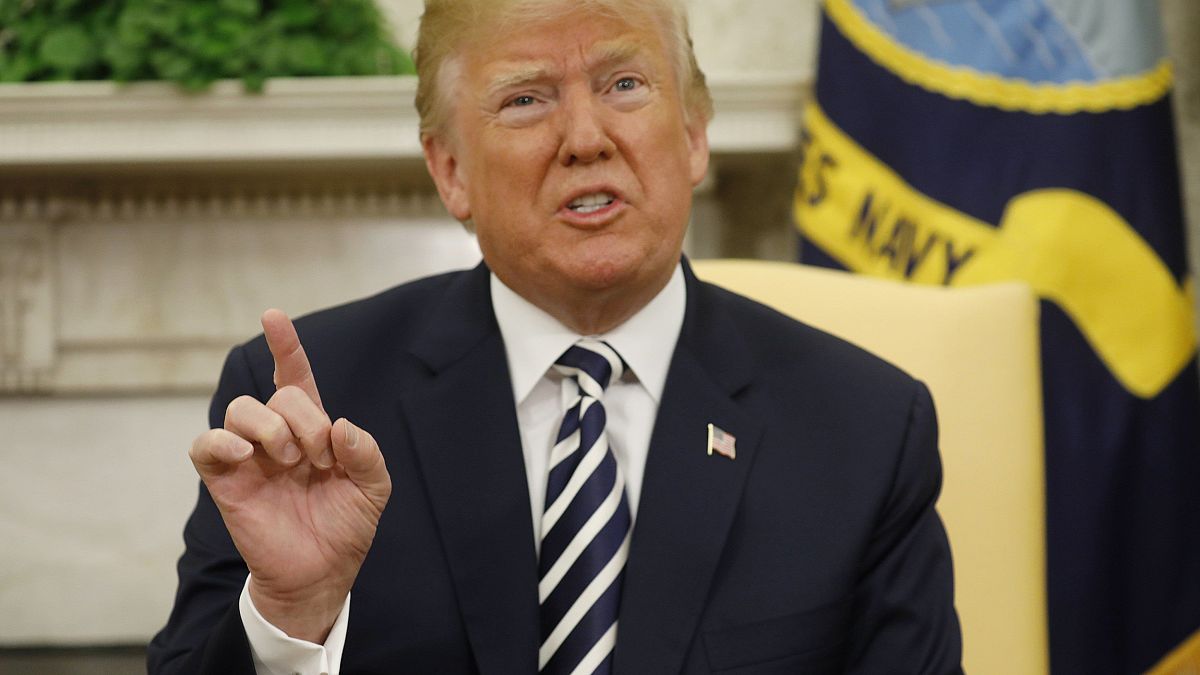A new report identifies an unprecedented rise in racial bias attacks after the president took office.
By Michelle Chen
Go home to Afghanistan! Terrorist! You don't belong here! These words became tragically familiar to many Muslim Americans after September 11. But while once heard as racial epithets, these days, such sentiments echo official border policy.
President Trump launched his "Muslim travel ban" at the dawn of his administration. A series of legal challenges immediately followed, alongside massive, continualnationwide protests. (The case has since wended through various lawsuits and will finally go before the Supreme Court this week.) But while the policy has been challenged as a border-security measure — since most of the eight countries it targets are predominantly Muslim and labeled as terrorist threats — its underlying constitutional conflict attests to a different kind of terror, unleashed by the administration itself.
An analysis of bias incidents by the Council on American Islamic Relations (CAIR) suggests that the border ban has had a more immediate effect on our communities: children face racist taunts from classmates; Muslim business owners face savage public harassment; and mosques have been vandalized, among other incidents. The outward expression of deep hatred, advocates warn, has become more brazen and even normalized since Trump took office.
The stream of racial animus — from strangers, neighbors, even officials — documented in CAIR's report is unprecedented, encompassing nearly 2,600 anti-Muslim bias attacks in 2017, up about 17 percent in 2016. Trump's inflammatory words parallel the anti-Muslim hate that has now spread across both red and blue states, often defying traditional geographical and left-right divides, from California (870 bias incidents) to Texas (just under 400).
Yet the attacks may ultimately hinge on factors that are less linked to an area's party affiliation or demographics than to the racial tensions generated by the daily news cycle. It might be the middle-schooler getting her hijab pulled by a school bully, or vilified by peers on social media; it could be when a Muslim-owned local restaurant's storefront window is smeared with bacon fat overnight in a grotesque prank. Other "random" attacks shade into more systemic oppressions: being denied a retail job for refusing to remove your headscarf on the shop floor, a landlord refusing to rent a space for a local Quranic school, a family blocked from a flight after booking a ticket with the "wrong" surname.
Bigotry facing Muslim-American youth also normalizes de facto school segregation, alienating children from the one institution designed for their protection and social inclusion. The problem even includes bias coming directly from educators: In one case in California, an English teacher used Fox News articles "that demonized American Muslims and spread anti-Muslim conspiracy theories" as class texts for four years before the school finally intervened at a local parent's behest. The family was backed by community advocates from CAIR; countless others lack that kind of legal support, or their kids might be too ashamed even to report their struggles in school.
All these sentiments, of course, predate Trump's ban. But it was his administration that cloaked his order with a shield of normalcy, which, combined with his demagoguery, has ingrained hate into the landscape of our political culture.
And a stunning number of anti-Muslim incidents directly involved the state, often in the form of mistreatment by law enforcement and border authorities. Overall, CAIR reports, "Federal government agencies instigated 35 percent of all anti-Muslim bias incidents recorded," including Customs and Border Patrol and the FBI (with 348 and 270 incidents, respectively). However, the lack of transparency surrounding immigration enforcement can make it near impossible to distinguish blatant discrimination from rational security protocols. Even in documented cases of unexplained delays in processing visa and asylum applications, the government might seek to justify arbitrary barrierson security grounds with virtually no accountability, leaving families — even longstanding US residents — with little recourse against endless layers of targeted obstruction and red tape in the immigration gauntlet.
But perhaps the starkest illustration of the ban's cultural impact doesn't involve international borders, but one the country's constitutional freedoms: that to move. CAIR documented the greatest number of bias incidents — 20 percent of the total — "at an air, bus, or train terminal." Whether confronted by border security or profiled by transit officials, people face criminalization simply for exercising their right to move freely as public citizens and as social equals.
From the campaign trail to the Oval Office, Trump's ban was never just pandering to his base: It's a shrill, incendiary dog whistle for both officials and everyday sympathizers, casting Muslims as second-class citizens. As a political measure, the policy reveals Trump's callously discriminatory conception of transnational terrorism, and it stokes public anxieties around Muslim-descent communities at home and abroad by presenting Islam as a fundamentally foreign threat, incompatible with cultural norms — that is, the myth of a homogenous white majority.
That sentiment drives a violent climate that degrades civil rights and religious freedom. It sanctions baseless suspicions that the local mosque is a secret bastion of jihadism, that any Muslim who displays their faith in public might be an "extremist." It fuels deeper socioeconomic inequities as well: Some nine percent of incidents recorded by CAIR involved employment discrimination, such as "including denial of work, being passed over for promotion, or harassment by a supervisor or other senior staff" — revealing a subtle criminalization of Islam that encourages workplace segregation and excludes Muslims from economic opportunity.
Trump's Muslim ban doesn't just keep out strangers from faraway lands; it criminalizes a whole swath of American society, insidiously constructing new barriers between communities and making outsiders of us all.
Michelle Chen is a contributing writer at The Nation, a contributing editor at Dissent and a co-producer of the "Belabored" podcast and Asia Pacific Forum on WBAI FM.
Opinions expressed in View articles are not those of euronews.
